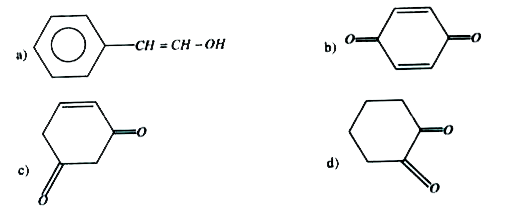What mass of Agl will dissolve in 1.0L of 1.0M NH3 ? Neglect change in conc. NH3
[ Given , Ksp(Agl)=1.5×10−16,Kf[Ag(NH3)+2]=1.6×107],(At .Wt . Ag =108 , 1 =127) Solution in Telugu
4.9×10−5g
0.0056g
0.035g
0.011g
The correct Answer is:D
Due to higher value of Kf mostly Ag+ converted in to complex.
KSp.Kf=x2(Z−2x)2
1.6×107×1.5×10−16=x2(1−2x)2
but 1−2x≈1,x=4.9×105 mol /lit
Mass of Agl=4.9×10−5×235=0.011gm
Topper's Solved these Questions
- BOOK - AAKASH SERIESCHAPTER - IONIC EQUILIBRIUM EXERCISE - ADDITIONAL PRACTICE EXERCISE (LEVEL -II LECTURE SHEET (ADVANCED) (More than One correct answer Type Questions))8videos
IONIC EQUILIBRIUM
- BOOK - AAKASH SERIESCHAPTER - IONIC EQUILIBRIUM EXERCISE - ADDITIONAL PRACTICE EXERCISE (LEVEL -II LECTURE SHEET (ADVANCED) (Linked Comprehension Type Questions))10videos
IONIC EQUILIBRIUM
- BOOK - AAKASH SERIESCHAPTER - IONIC EQUILIBRIUM EXERCISE - ADDITIONAL PRACTICE EXERCISE (LEVEL -I (MAIN) (Straight Objective Type Questions))22videos
IONIC EQUILIBRIUM
- BOOK - AAKASH SERIESCHAPTER - HYDROGEN AND ITS COMPOUNDSEXERCISE - QUESTIONS FOR DESCRIPTIVE ANSWERS20videos
HYDROGEN AND ITS COMPOUNDS
- BOOK - AAKASH SERIESCHAPTER - ISOMERISM EXERCISE - ADDITIONAL PRACTICE EXERCISE ( PRACTICE SHEET (ADVANCED) INTEGER TYPE QUESTIONS)10videos
ISOMERISM
Similar Questions
PCl5 in solid state exists as PCl+4andPCl−6 and also in some solvents it undergoes dissociation as 2PCl5⇔PCl+4+PCl−6
Which statement is wrong ?04:15View Solution100 ml 0.1 MH3PO4 solution is being titrated with 0.1 M NaOH solution. The pH of the reaction mixture keeps increasing with addition of NaOH. The successive dissociation constant of H3PO4 are 10−3,10−6and10−14 respectively.
How much volume of the given NaOH must be added such that a buffer H2PO−4/HPO−24 of maximum capacity is formed.06:55View SolutionA solution contains equimolar concentration of a weak acid HA and its conjugate base A−,pKb of A− is 9 . The pH of the solution is
02:55View SolutionWhy the use of hard water is disadvantages?
01:31View SolutionTautomerism is exhibited by X number of compounds among the following. What is X.
 04:49View Solution
04:49View SolutionWhat mass of Agl will dissolve in 1.0 L of 1.0 M NH3? Neglect change in conc. Of NH3.
[Given: Ksp(AgI)=1.5×10−16), Kf[Ag(NH3)+2]=1.6×107], (At. Mass Ag=108,1=127)07:29View SolutionCalculate the ratio of [Ag+][Ag(NH3)2]+ in 0.2M solution of NH3 .If the stability constant for the complex [Ag(NH3)2]+is1.7×107
07:29View SolutionAg++NH3⇔[Ag(NH3)]+,K1=3.5×10−3
[Ag(NH3)]++NH3⇔[Ag(NH3)2]+,K2=1.7×10−3
[Ag(NH3)2]+ का उत्पादन स्थिरांक है04:40View SolutionAg++NH3⇔[Ag(NH3)]+,K1=3.5×10−3
, [Ag(NH3)]++NH3⇔[Ag(NH3)2]+,K2=1.7×10−3 . Calculate the formation constant of [Ag(NH3)2]+. What is the instability constant ?06:08View SolutionCalculate the concentration of free silver ion [Ag^(+) ] in an aqueous solution that is prepared as 0.1 M AgNO_3 and 3.0 M NH_3 ,Ag^(+) (aq) +2 NH_3 (aq) hArr [Ag(NH_3) _2]^(+) (aq) K_(f) = 1.6 xx 10^(7) . If answer is x xx 10^(-10) M then x= ______?
06:03View SolutionThe simultaneous solubility of Ag CN (Kf=2.5×10−16)andAgCl(Ksp=1.6×10−10) in 1. 0M NH3 (aq) are respectively : [Given,Kf[Ag(NH3)+2]=107]
01:31View SolutionThe simultaneous solubility of Ag CN (K_(f) =2.5 xx 10^(-16) ) and AgCl (Ksp =1.6 xx 10^(-10 ) ) in 1. 0M NH_3 (aq) are respectively : [Given ,K_f [Ag(NH_3)_2^(+) ]= 10^(7) ]
08:13View SolutionDetermine the number of moles of Agl which may be dissolved in 1.0 litre of 1.0M CN− solution ,Ksp for Agl and Kf for [Ag(CN)2]− are 1.2×10−17M2and7.1×10−19 respectively . If answer is 4.9×10x then x =__________?
View SolutionWhat mass of Agl will dissolve in 1.0L of 1.0M NH3 ? Neglect change in conc. NH3
[ Given , Ksp(Agl)=1.5×10−16,Kf[Ag(NH3)+2]=1.6×107],(At .Wt . Ag =108 , 1 =127)08:16View SolutionFor a general reaction given below, the value of solubility product can be given us
AxBy=xA+y+yB−xa00a−sxsys
Ksp=(xs)x.(ys)y(or)Ksp=xxyy(S)x+y
Solubility product gives us not only an idea about the solubility of an electrolyte in a solvent but also helps in explaining concept of precipitation and calculation [H+] ion, [OH−] ion. It is also useful in qualitative analysis for the idetification and separation of basic radicals
What is the molar solubility of Cu(OH)2, in 1.0 M NH3 if the deep blue complex ion [Cu(NH3)4]2+ is formed. The Ksp, of Cu(OH)2, is 1.6×10−19 and K3, of [Cu(NH3)4 is 1.1×101307:11View Solution

